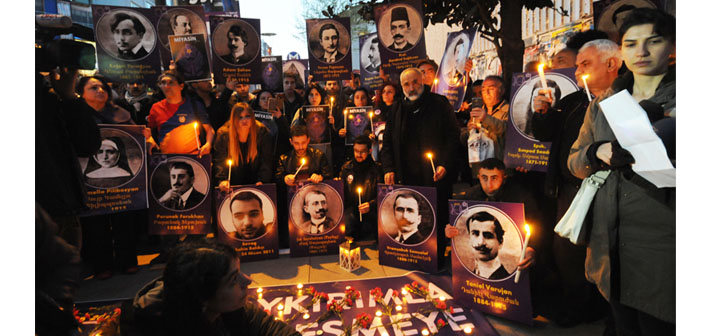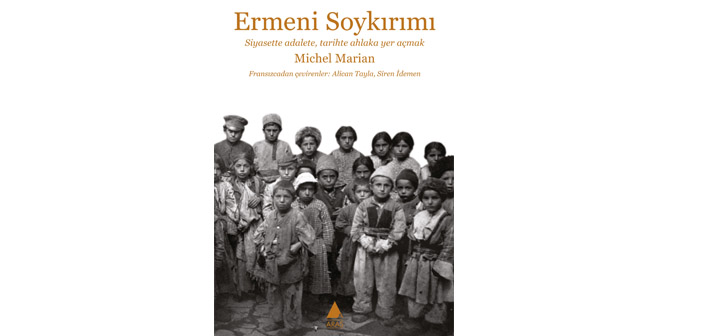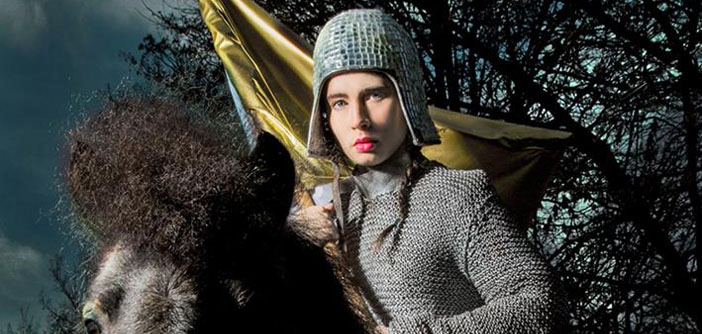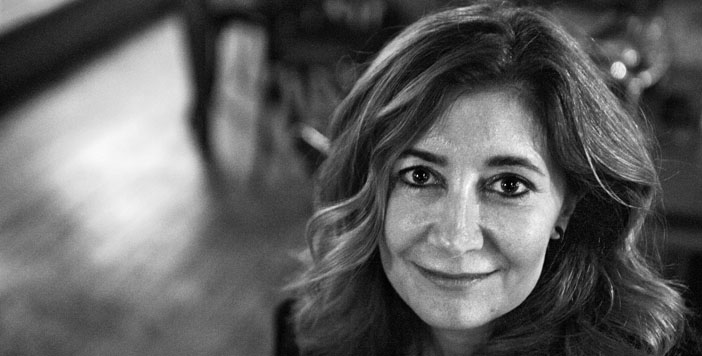2015 was really important, since it is the centennial of the Armenian Genocide. Preparations started months ago and the people were waiting for what will happen with bated breath. We covered the events throughout the year, but some questions prepossessed us toward the end of the year: “How was 2015 in terms of recognizing 1915?” and “What have Armenian community in Turkey done in terms of producing ideas and activities?” In order to find answers to those questions, we talked to the people who are actively working on these issues and producing ideas. Moreover, we talked to people from Armenia. Majority agrees that there is some progress, but it is obvious that there are still many things that should be achieved.
BARUYR KUYUMCİYAN-VARTAN ESTUKYAN-ALİN OZİNİAN
The question “Is there room for Armenians in Turkey?” stands in front of us.
Episcope Sahak Maşalyan –Armenian Patriarchate Inter-church Dialogue Representative
The centennial was peaceful; there were no provocations, terrorist attacks or negative reactions. This is the most positive aspect for Armenians in Turkey. Media gave a wide coverage to 1915 both in Turkey and in the world and we were worried that we might be subjected to violence, but this didn’t happen. In part, the attitude of the Church was effective, though some criticized it. We considered the condolences, a minister’s participation in April 24 ceremony and the messages as positive steps taken by the government. In turn, the Patriarchate made rightminded statements. Moreover, Turkey was in such a chaotic condition that 1915 took a back seat, though it is really important for us. 2 elections, events in Southeast region, developments in Middle East took precedence over recognizing what happened in 1915. On the other hand, more people began to say, “1915 is genocide” or “Yes, something happened to Armenians 1915”. This is rather a positive step, because it means that people abandoned the strict denial mechanisms and became more conscious. Also, the young people in our community became more conscious. This awareness might lead to two results. A young person who learned more about 1915 will start to assess the reflections of 1915 to this day and question her own presence in Turkey. Or, she will recognize the past and decide to live in Turkey for all that. This is the contribution of the centennial; the question “Is there room for Armenians in Turkey?” stands in front of the Armenians now.
Another positive development in 2015 was about the Turkish historiography. Now, there are works other than the works of official history.
“Armenian community was indifferent to centennial”
Dikran Altun –Businessman
I think that Armenian community in Istanbul was indifferent to centennial. I observed that intellectual or conservative people in Turkey were more interested in the centennial than Armenian community. I wish our community were more active, because we are not just any Diaspora; we are a community that went through those terrible times and experienced its aftermath. We should have had more to say. Besides, the commemorations in the world were more reasonable and less emotional compared to past. However, I don’t consider that the condolences, the ceremony and official messages as progress. This is a conjectural step taken by the state; it had to do something, since it cannot remain silent, while the entire world was talking about 1915.
“A positive beginning for recognition”
Toros Alcan - Representative of Foundations General Assembly Minority Foundations
2015 was an important year in terms of recognizing the past. Of course this process of recognition will last more than a year, but I think that it was a positive beginning. The condolence from the government and Minister of European Union’s participation in the ceremony has symbolic importance. Armenian community in Turkey shouldn’t make an effort for recognition, because we are a part of this society. It is meaningless to say, “Feel sorry for us.” We are not Diaspora; so, Turks, Kurds and Circassians that we live together should make an effort for us.
“Nothing happened after the condolence”
Melkon Karaköse - Samatya Surp Kevork Church Honorary Chair
During 2015, there were events, concerts and exhibitions. There was a commemoration ceremony in Taksim. These are valuable of course, but our pain isn’t relieved. We couldn’t have mourned for our losses properly. When the state does nothing, these efforts are not enough.
In 2014, Recep Tayyip Erdoğan’s condolence message made us feel a bit good. We thought that it is a start and we hoped that there will be more efforts. Then, in 2015, a similar message was released. Are messages enough? We expect more concrete and clear steps. We don’t want any land or compensation; at least, I don’t, because our pain and suffering don’t have a material value, they are not for sale. On the other hand, an obvious apology and recognition is really important. State’s recognition is the most important step, because if the state recognizes 1915 and apologizes for it, people would follow them and the transformation in mentality would start.
“Moving forward is possible under any circumstances”
Rober Koptaş – Aras Publishing Editor-in-chief
This year, Gatoğigos (Catholicos) canonized the victims of 1915 and I think that this was the most meaningful thing that happened in 2015.
I didn’t expect a new, political development in terms of the recognition of the genocide. The statements of the Pope and German President Gauck are very meaningful. On the other hand, the West doesn’t want to irritate Turkey; because of that, Obama, Merkel and Hollande haven’t made statements that might be considered as recognition. We didn’t expect them to do so anyway.
Instead of counting on the steps that might be taken by the states, we have to develop strategies for supporting the transformation inside the country and adopt an attitude that will have more permanent effects. In the last 20 years, Armenian question and genocide became one of the subheadings of Turkey’s democratization process; this is the success of a small group of Armenian intellectuals, including Hrant Dink. Now, we are heading to a civil war and unfortunately, we cannot talk about a democratization process in Turkey. It is not easy to carry a struggle for 1915 and genocide now. However, moving forward is possible under any circumstances, if we can produce ideas that make remembering the past an indispensable part of democratic politics.

“Nothing happened after the messages”
Tatyos Bebek, member of Thought Platform
The centennial came and passed without causing any considerable change… Change cannot take place by itself, of course. Given the fact that Armenian community in Turkey and in the world hasn’t made enough effort, this result was inevitable. On the other hand, “Armenian question” became open to public discussion in last 15 years; it is no longer a taboo. Centennial had a symbolic value in terms of recognition. Some concrete steps might have been taken. Unfortunately, that didn’t happen.
Some events were organized about the centennial and I can say that the events of Hrant Dink Foundations were significant. Also, there was a meeting with people from Diaspora and a commemoration ceremony in Taksim. Apart from that, there was no other remarkable event. We could have created a common voice for raising awareness, but we failed to do it. We should have the ability to come together and solve our problems and demand things from the government without fear. So, the centennial passed, but we can do other things.
The statements of the president and the prime minister of Turkey were flattering and they gave hope, but nothing happened after that. Hate speech and denial of the genocide continue. We cannot become judges, military or police officers. Political mentality hasn’t changed. A century-old tradition: we are still the “other”.
“Our expectations remain unsatisfied”
Boğos Çalgıcıoğlu – actor
Honestly, Armenians were worried this year, but they had high expectations in terms of recognizing 1915. Unfortunately, those expectations remain unsatisfied. There are some developments in theory, but I don’t think that they will put into practice. There is just some talking in 2015 which I call “the talking year”. When I was young, about 40 years ago, Armenians hadn’t been talking about 1915; they were acting like nothing happened, but now, they are talking about it. Saying things like “We had an Armenian neighbor who made very nice topik” is hurtful. Now, we can talk about our culture. On the other hand, we are way behind in terms of recognition. Armenian community organized events like concerts and exhibitions, but we did this with fear and hesitation.
“There was some effort”
Masis Kürkçügil, author
Armenians in Turkey was expecting some official developments, but this wasn’t right. However, given the books published in the last 20 years on the genocide and Armenians, 2015 was a year of intensified discussions. Now, everyone is aware that 1915 is one of the most important violent events that concern not only Armenians, but the entire world. Everyone in Turkey knows that now. Given the fact that there are 60.000 Armenians in Turkey, we can say that there were some efforts in 2015, when we look at the events that were organized.
“There are still people who don’t want to understand”
Luiz Bakar – former lawyer of the Patriarchate
In 2015, we were able to talk about this issue more comfortably compared to the previous years. However, this didn’t lead to a significant change. The people who want to understand had the chance to learn more about this issue, but there are still others who don’t want to understand. As far as I see, we haven’t done much as a community. The condolence message in 2014, president’s message, Badarak ceremony don’t mean anything special to me. We hoped that there will be a change, but we see that nothing has changed.
“We won’t stop”
Nazik Armenakian –Journalist, photographer
This year, I took the photographs of people who experienced the genocide. There were exhibitions in different cities. Works, projects and researches will continue. We won’t stop after the centennial. We will be more conscious and deal with this issue from a different perspective.
“Badarak ceremony keeps my hopes up”
Tamar Karasu –General Manager of Kitab-ı Mukeddes Company
People might attribute a different meaning to the centennial, but my loss was the same last year and it will be the same next year. In the past, the result of even the best conversation about 1915 was to blame the victims. Living my pain, sharing it with others, talking about it and being understood are new experiences. In the past, we were holding off from telling that we are Armenians and today, people freely tell that their grandparents are Armenians. I find this valuable.
In my opinion, the condolence message of the prime minister in 2014 was valuable, because by that message, our losses are recognized by a top-level position in the state. My pain is shared. Badarak ceremony was the peak of the centennial for me; even the representatives of the state attended the ceremony. For the first time, we commemorated our losses properly and prayed for their souls. Armenian Church canonized 1.5 million Armenians who were killed during the genocide. I cannot think of a stronger voice, a quieter wail than this. I feel hopeful for the future.
“2015 was a means”
Jaklin Çelik, author
In 2015, there were official 1915 commemorations in many countries. The commemoration ceremonies held in different places in Istanbul were really crowded. Armenians, Turks and Kurds gathered together for easing the burden of historical heritage. In the end, for people who live in Turkey, 1915 is a traumatic history that is not reckoned yet. Those commemorations were a means to empathize.
“From victim to demandent”
Artak Beglaryan - Spokesperson of the PM of Karabakh
Various states and organizations recognized the genocide and started to work on denial laws. Some people in Turkey embraced the recognition and took the responsibility. However, Turkish state and the people in general couldn’t come to the point of recognizing and getting rid of this burden.
I think that Armenian government and Diaspora should have invested in the academic researches. We should have more experts on Ottoman history and international law. In the centennial, we began to get rid of the “victim” psychology and become demandents. This is an important transformation. The centennial is not the end, it is the beginning.
“This is a new phase”
Vahram Ter-Matevosyan – instructor aytNational Academy of Sciences and American University of Armenia
I can say that 2015 caused important changes. It is hard to explain what has changed, but we feel that we proceeded to a new phase in terms of the demands of Armenians and the recognition and condemnation of the genocide.
Erdoğan held a “Gallipoli commemoration” this year and it revealed his cynical attitude toward democratization.
“The state still says ‘You are Armenians’ in the east”
Norayr Olgar - Activist, Nor Zartonk
The centennial was neither the last nor the first chance of the state and people for the recognition. With the accumulation of the struggles that we have been carrying for years, we expressed our demand of recognition more strongly this year. The recognition of the genocide, which was a big social taboo for both Armenians and Turks, began to be broken by marches and commemoration ceremonies. While we shout on the streets saying that “The genocide continues from 1915 to Hrant”, we realize that the state is not even close to recognition. People like Hrant Dink, Sevag Balıkçı and Maritsa Küçük were murdered by the state and the perpetrators were rewarded. At the same time, the state attacks the people in the east by saying “You are Armenians.” In the end, 2015, 100th anniversary, is just a date. The state should recognize the genocide and the people should understand each other in order that Armenians will no longer live with the fear of being killed. This is the only way for living together.
“There was no strategy”
Lara Aharonian - Erivan Women’s Resource Center Leader
As a person who listened to the stories of genocide from her grandmothers, I hoped that my pain and the feeling of injustice will be relieved a bit. The commemoration ceremonies made Armenians feel a bit well. We are able to explain what happened more openly, but this doesn’t provide any solution for the sufferings of the past. Organizing commemoration ceremonies on the lands where the genocide took place broke the silence. Activists, artists, feminists, journalists from Armenia and Diaspora should gather together with their colleagues in Turkey.
“We were going to suffer the same fate”
Hayk Khanumyan - National Revival Party Chair, Member of Karabakh Parliemant
Armenians in Karabakh commemorated 1915 just like all Armenians. The commemoration ceremonies have a different meaning for the people of Karabakh. If we wouldn’t have organized for self-defense at the end of ‘80s, we were going to share the same fate. With Karabakh War, we defeated this fate.





